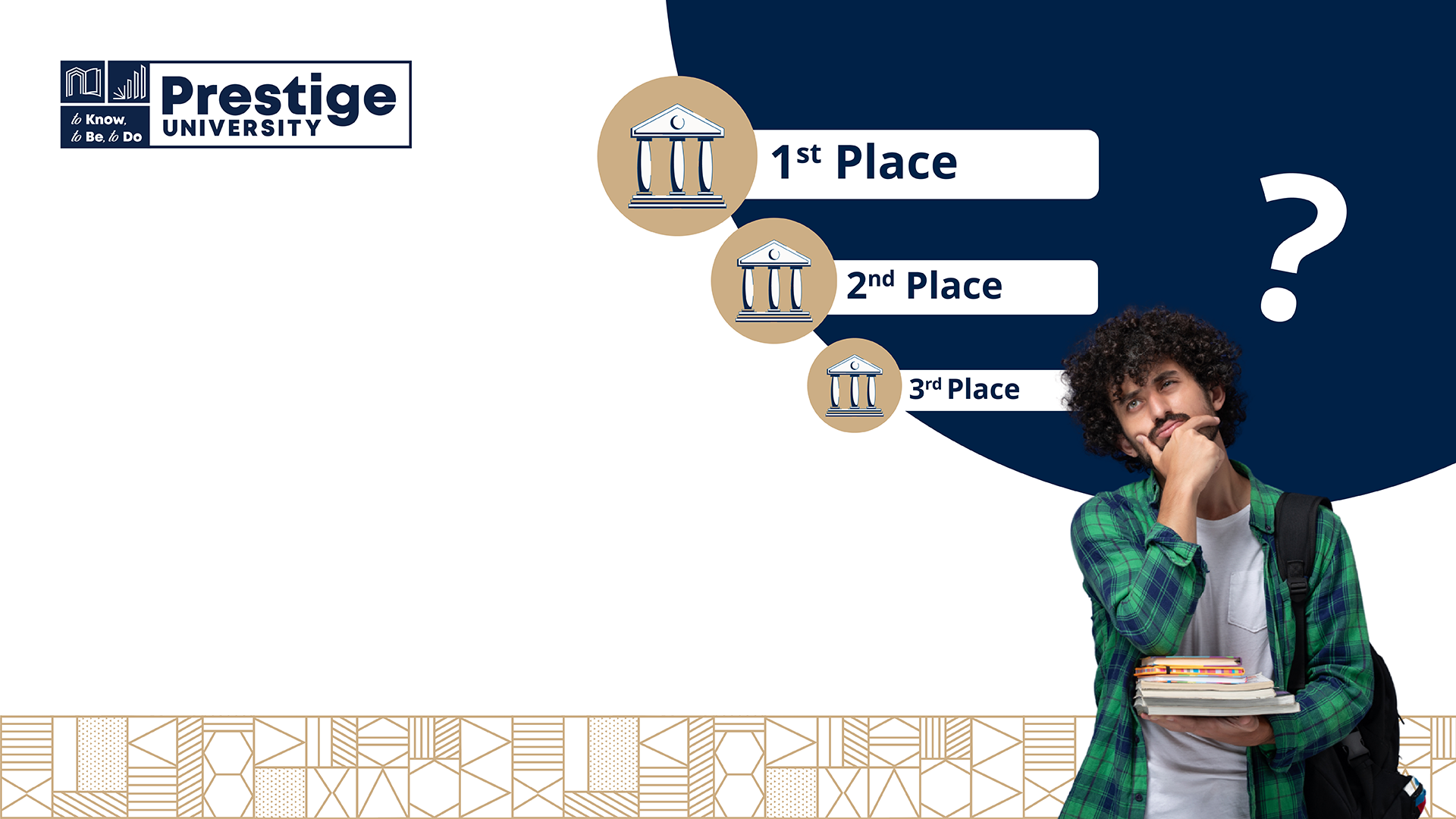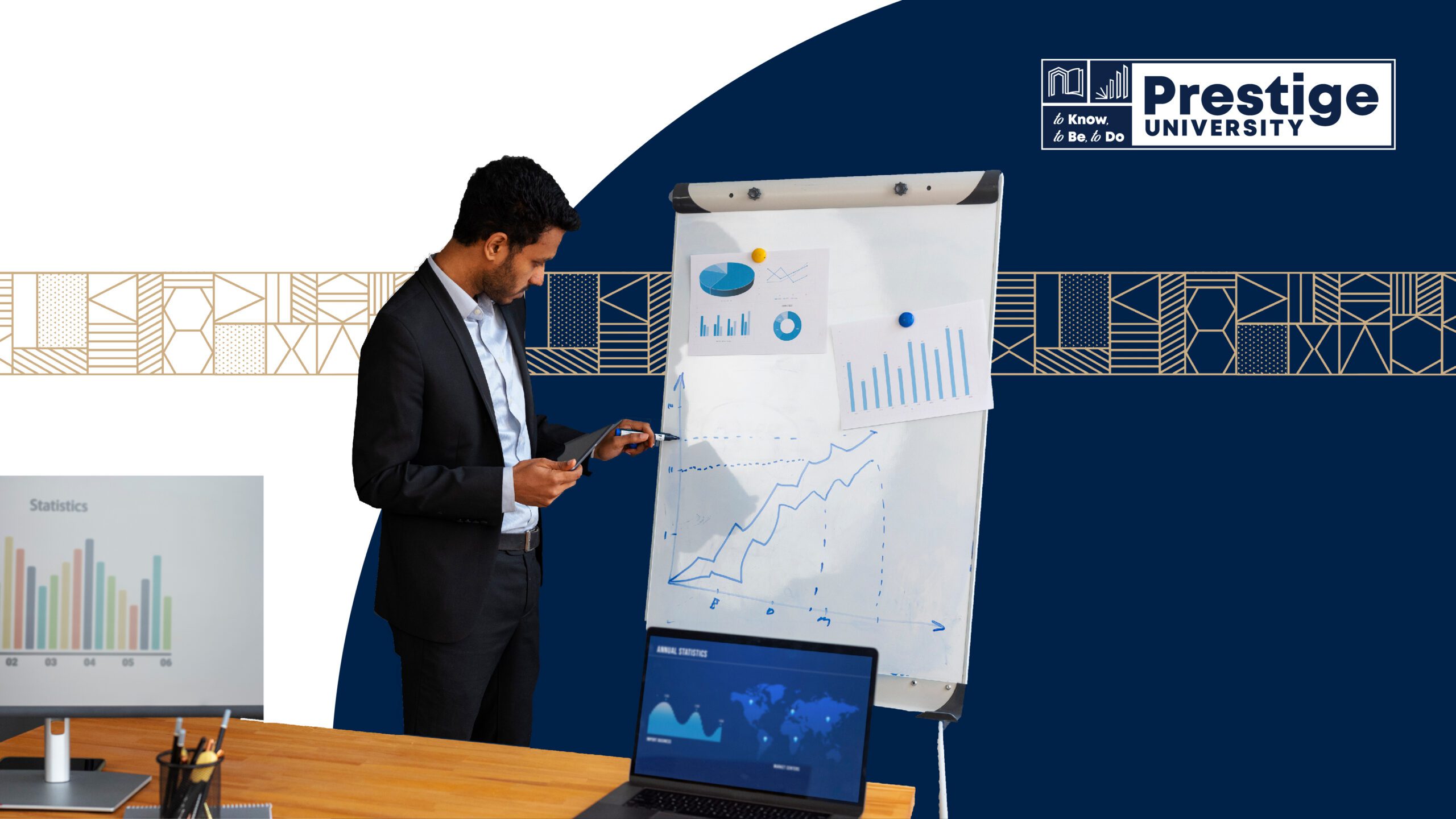What Makes Food & Agribusiness MBA an Evergreen Career Choice?
Food is a critical pillar for sustaining every form of life. Therefore it should come as no surprise that the food and agribusiness industry is just as critical for sustaining the world’s economies.
It not only feeds the world, but also fuels economic growth, employment, and innovation.
If expressed in numbers, the gross production value of the global agriculture market will reach US$4.86 trillion by 2028. As of 2023, the Indian agriculture market is worth an impressive USD 457.26 billion, with projections anticipating a robust CAGR of nearly 4.9% through 2032, culminating in a value of approximately USD 703.30 billion. With such optimistic numbers, the food and agribusiness industry stands as an evergreen choice for both MBA aspirants and graduates. To know more about how an MBA in Food and Agribusiness Management can lead to a fulfilling career full of growth prospects, continue reading.
In response to the ever-increasing demands within the industry, the Food & Agribusiness MBA program reveals itself as a pioneering pathway and an attractive field of study for aspiring professionals. This specialised program is designed to equip individuals with the multifaceted skills and strategic perspectives necessary to navigate the challenges and opportunities inherent in the global food and agribusiness landscape.
Within this landscape, innovation and technology play pivotal roles in reshaping traditional practices, optimising efficiency, and addressing global challenges. For example, utilising satellite imagery, GPS technology, and sensors to optimise crop yields, reduce resource inputs, and minimise environmental impact. Integrating Internet of Things (IoT) devices are used for real-time monitoring of soil conditions, crop health, and equipment performance.
What Are the Challenges in Meeting a Growing Population’s Increasing Food Demand?
The challenges confronting the food and agribusiness industry are poised to intensify in the coming decades. Projections indicate that the world’s population will reach 8.6 billion by 2030, and further to 9.8 billion by 2050. Accompanying this demographic expansion is a staggering 70% expected increase in by 2050.
This data underscores the urgency of addressing issues such as ensuring a consistent and sufficient food supply for the global population along with mitigating the environmental impact of agriculture, including soil degradation, water pollution, and excessive use of chemicals.
There is a high intensity of vulnerability of food supply chains to disruptions, such as pandemics, climate events, and geopolitical issues. Moreover, there is only limited adoption of technology in agriculture, which hinders efficiency and productivity. Economic disparities and lack of development in rural agricultural communities have also been seen with an exponential rise in recent years.
It is an extensive task to adapt agriculture to the impacts of climate change, such as extreme weather events and shifting growing seasons. High levels of food waste throughout the supply chain have been noticed recently, from production to consumption. As per the Food Wastage Index report by the United Nations Environment Programme (UNEP), an estimated 68.7 million tonnes of food are wasted annually in households across India. Lastly, inadequate policies and regulations hinder sustainable and equitable development in the agricultural sector.
What Career Opportunities Can an MBA in Food and Agribusiness Management Unlock
There is a rising need for skilled professionals in agribusiness to address the escalating demand for food. With the industry playing a pivotal role in ensuring food security, an MBA in food and agribusiness management becomes a key enabler for individuals aspiring to assume leadership positions. The landscape of food and agribusiness unfolds a spectrum of career opportunities, ranging from hands-on agricultural practices to strategic business roles. Professionals can find fulfilment in roles such as agricultural production, supply chain management, research and development, policy advocacy, and more.
Agricultural Production and Management
Involves managing crop cultivation, livestock, and overall farm operations. Opportunities to specialise in organic, precision, or sustainable farming practices.
Supply Chain Management
Encompasses the coordination of processes from production to distribution, ensuring timely and efficient delivery. Specific roles include logistics management, inventory control, and optimising transportation networks.
Research and Development
Focuses on scientific advancements to improve crop yields, develop disease-resistant crops, and enhance agricultural sustainability—opportunities in biotechnology, genetics, and agronomy to drive innovation in farming practices.
Marketing and Brand Management
Involves creating and implementing strategies to promote agricultural products. Roles include market research, branding, digital marketing, and building connections with retailers and consumers.
Finance and Investment
Management of financial aspects such as budgeting, financial planning, and risk mitigation within agribusiness. Opportunities to work with financial institutions, investment firms, and agricultural cooperatives.
Entrepreneurship and Agtech
Opportunities to start and manage agribusiness ventures, leveraging technology for efficiency and sustainability. Involvement in Agtech startups, developing innovations in precision farming, drones, and data analytics.
Agribusiness Consulting
Providing strategic advice to agricultural organisations, farmers, and policymakers. Specialisations in market analysis, risk assessment, and sustainable practices consulting.
Policy and Advocacy
Shaping governmental policies to support sustainable agricultural practices and address industry challenges. Working with NGOs, governmental agencies, and international organisations on agricultural policy initiatives.
International Trade and Export
Managing the export and import of agricultural products on a global scale. Involvement in trade negotiations, market access, and compliance with international regulations.
Food Safety and Quality Assurance
Ensuring compliance with safety standards, quality control, and regulatory requirements in food production. Roles include food safety management, quality assurance, and regulatory affairs.
How Food & Agribusiness MBA Program Can Address Key Industry Challenges
The Food & Agribusiness MBA program is uniquely positioned to address several real-life challenges within the industry. Here are some key problems that professionals with this specialised skill set can actively contribute to solving:
Food Security
With an MBA in food and agribusiness management, one can develop and implement sustainable agricultural practices, improve distribution systems, and address issues related to food access and affordability.
Sustainable Farming Practices
An MBA in food and agribusiness management can help implement and promote sustainable farming practices such as precision agriculture, organic farming, and agroecology to minimise environmental harm.
Supply Chain Resilience
With an MBA in food and agribusiness management, one can design and implement resilient supply chain strategies, leveraging technology for real-time monitoring, and developing contingency plans for rapid response.
Technology Integration in Agriculture
An MBA in food and agribusiness management can drive the integration of technology (Agtech) such as drones, IoT, and data analytics to optimise farming operations, enhance yields, and improve decision-making.
Market Access for Small Farmers
With the help of an MBA in food and agribusiness management, one can develop strategies to connect small farmers with markets, establish fair trade practices, and support the formation of cooperatives to strengthen bargaining power.
Rural Development
However, this can be solved by implementing initiatives that promote rural development, including access to education, healthcare, and infrastructure, to create sustainable and thriving communities.
Climate Change Adaptation
By researching and implementing climate-resilient crop varieties, water management strategies, and sustainable land-use practices during an MBA in food and agribusiness management, one can work towards resolving these issues.
Waste Reduction in the Food Supply Chain
An MBA in food and agribusiness management can aid one in implementing measures to reduce food waste, improve storage and transportation efficiency, and promote consumer education on responsible consumption.
Policy Advocacy and Reform
With an MBA in food and agribusiness management, one can engage in policy advocacy, collaborate with stakeholders, and contribute expertise to influence policy changes that support sustainable agriculture and rural development.
Global Trade Challenges
Navigating complexities in international trade agreements, tariffs, and market access requires utilising knowledge of global trade dynamics to facilitate smoother international transactions, address trade barriers, and enhance opportunities for agricultural exports. This can be achieved through an MBA in food and agribusiness management.
How MBA Professionals Are Leading the Way with Innovation
Precision Farming Integration
A professional with an MBA in agribusiness management collaborates with technology experts to implement precision farming techniques on a large-scale farm. This includes the use of drones, sensors, and data analytics to optimise irrigation, monitor crop health, and reduce resource wastage, thereby increasing overall farm efficiency.
Sustainable Supply Chain Implementation
A Food and Agribusiness MBA graduate works with a major food production company to revamp its supply chain. By introducing sustainable sourcing practices, reducing carbon footprint in transportation, and implementing eco-friendly packaging solutions, they lead the company towards a more environmentally conscious and socially responsible operation.
Market Expansion through Innovative Products
Individuals with a Food and Agribusiness MBA working for a food manufacturing company identify a rising trend in plant-based protein. They lead the development and successful market launch of a new line of plant-based products, contributing to the company’s growth by tapping into the increasing demand for sustainable and healthy alternatives.
Policy Advocacy for Agricultural Innovation
A Food and Agribusiness Management MBA graduate engages in policy advocacy at the government level. They work towards securing funding and incentives for research and development in agriculture, leading to the implementation of innovative farming practices and the introduction of advanced technologies in rural areas.
International Collaboration for Crop Research
A Food and Agribusiness MBA professional collaborates with agricultural research institutions from different countries. Together, they work on projects aimed at developing climate-resilient crop varieties and sharing knowledge and resources to address global food security challenges through innovative and sustainable agricultural practices.
What You Can Expect From an MBA in Food and Agribusiness Curriculum
As you contemplate this educational venture, understanding what the MBA in Food and Agribusiness curriculum entails becomes pivotal in shaping your educational and professional trajectory. An MBA in Food and Agribusiness opens doors to a comprehensive and dynamic range of practical education, equipping you with the essential tools to navigate the challenges and opportunities in the industry.
The curriculum is meticulously designed to cover a spectrum of vital domains such as building a strong strategic management foundation, building domain experience through super specialisations, learning to build social capitals like leadership and team dynamics, understanding agribusiness analytics and strategic procurement and more
An MBA in Food and Agribusiness curriculum often includes modules on sustainable business practices, environmental economics, and corporate social responsibility, empowering individuals to champion positive change within the agribusiness sector. In addition to its long-term viability, a career in food and agribusiness, complemented by an MBA from a private university, offers a dynamic and diverse range of opportunities.
Upon opening the layers of the MBA in Food and Agribusiness Management curriculum, it becomes evident that Prestige University stands as a beacon of excellence in this field. Renowned for its commitment to academic rigour, innovative teaching methodologies, and a faculty comprising industry experts, Prestige University ensures that students not only master the essentials but also emerge as visionary leaders prepared to drive positive change in the dynamic landscape of food and agribusiness. Each MBA program at Prestige University emphasises real-world applications, ethical practices, and global perspectives that align seamlessly with the evolving demands of the industry.
Moreover, the interconnected nature of food and agribusiness on a global scale ensures that professionals with an MBA in Food and Agribusiness from the best private university can make meaningful contributions to addressing societal challenges, promoting sustainable development, and fostering positive change.

















